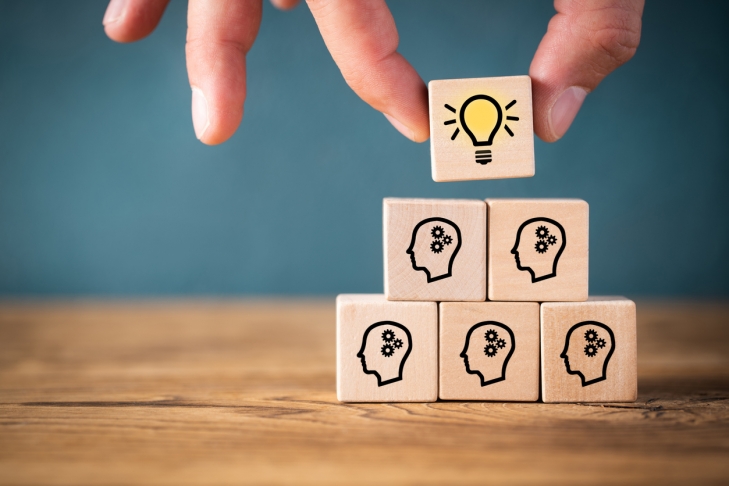
New challenges will drive innovation, says CPG’s Tan Shao Yen
For years, the CEO and CFO acronyms for ‘Chief Executive Officer’ and ‘Chief Financial Officer’ were, and still are, fixtures in all manner of financial reports. Then other C-titles started appearing regularly, ranging from CTO (Chief Technical Officer) to CMO (Chief Marketing Officer). And in the age of climate change, there are Chief Sustainability Officers.
Then there is the CIO – Chief Innovation Officer.
Trained and practiced as an architect, Tan Shao Yen was the CEO of CPG Consultants prior to his current appointment of Group Chief Innovation Officer at CPG Corporation, a subsidiary of CPG Corporation, a Singapore-based multi-disciplinary firm CPG Corporation that provides consultancy services, project management, construction supervision, and facilities management services.
In late 2019, CPG decided that innovation is taking a centre stage, and in order to better leverage on CPG Corporation’s multi-disciplinary capabilities and speed up on value creation to offer to the market, “I took up the challenge to this newly created corporate role,” says Shao Yen. “The fact that CPG has set up this innovation drive…signifies a determination to embrace innovation.”
He explains that while innovation was taking place all the time, in CPG it used to be more focused on incremental improvement on service quality and delivery. However, the time has come for a more systematic approach to foster internal innovation, as well as innovation through deeper external collaboration.
“What has happened for the last decade in Asia was that China has been a big driving force of innovation. The pace is picking up rapidly and that has created a momentum for Asia as a whole. It's creating this sense of urgency and a spillover effect that impacts Singapore.”
Startup trends
Speaking to Perspectives@SMU, Shao Yen elaborates on one of his brief as CIO: Network with innovation and entrepreneurial circles and forge partnerships to co-develop new solutions. In the two and a half years since accepting his new brief, the current President of Singapore’s Board of Architects sees a few emerging trends in the startup ecosystem.
“On the demand side, new challenges will continue to provide the drive for innovation,” he notes. “COVID-19 is one challenge, and climate change is driving innovation big time. There’s also urban and social challenges [relating to] the population and jobs creation.
“On the supply side, I see two things happening. One is the capital – you can see green financing schemes becoming very active, and all kinds of venture capital is forming. Singapore is attracting a fair bit of this.
“The other thing is growing talent. The education system [in Singapore] is also shifting and placing more emphasis on entrepreneurship, and even the way people learn and think has changed. Things like design thinking and problem-based learning [have been implemented to] create a supply for talent.”
He adds: “With the supply of talent and financial resources, new technology and solutions will open up. With this ecosystem, I [am seeing an] almost exponential growth.”
However, ‘growth’ is sometimes associated with a drive for economic development at the expense of Planet Earth. Is there a dichotomy between development and the environment? Must you choose one or the other?
“They can go together,” asserts Shao Yen. “In the past when people pursued development, because of the need to create jobs, governments just drove economic growth. But that was at the expense of the environment, because of the amount of carbon emission. So going forward we still need to continue to drive growth, but at the same time we need to find ways to do so without emitting as much carbon and ideally be carbon neutral.
“This new need will drive innovation. So the next thing is that people will come up with build material that's carbon neutral; that requires innovation. So the two are not conflicting. They need each other.”
Mentoring innovation
Incidentally, a startup working on carbon negative building materials was one of the finalists at the Lee Kuan Yew Global Business Plan Competition (LKYGBPC) in March where Shao Yen had served as a mentor. The startup, UK-based Plastech Innovation – since renamed as Sphera – caught his attention with its fundamental environment-friendly appeal.
The others that made an impression were one of the two main award winners, Relectrify, and WaveScan, which was paired with Shao Yen as mentor and won the SMU Chancellor Cup.
Would he fancy another stint as mentor in the next edition of LKYGBPC?
“Of course, first of all, I find satisfaction in being able to help courageous entrepreneurs navigate the built environment sector. There is also a strong motivation for me to help the built environment sector find relevant solutions.
“In addition, at the personal level, it was also a learning process for me – opening my mind to what is being done out there, to set me thinking about how they can be better applied in the built environment.”
Follow us on Twitter (@sgsmuperspectiv) or like us on Facebook (https://www.facebook.com/PerspectivesAtSMU)
Last updated on 30 Jul 2021 .

